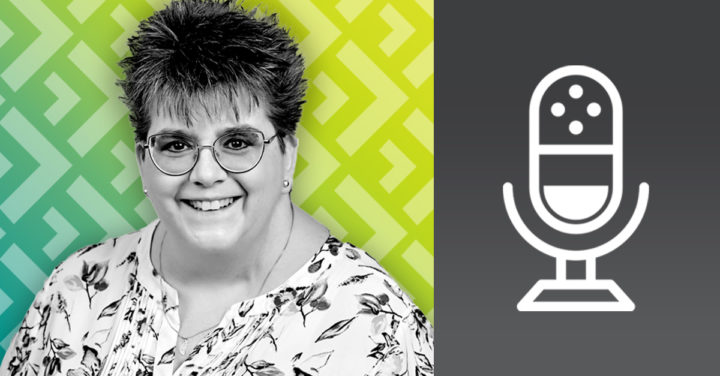
In 2022, Lynn Blackburn, the CIA’s Director of Professional Practice, Research and Governance, celebrated her thirtieth anniversary at the Institute. We invited Lynn to join us on the podcast to reflect on three decades of working with the profession and share how things have changed at the CIA Head Office since 1992.
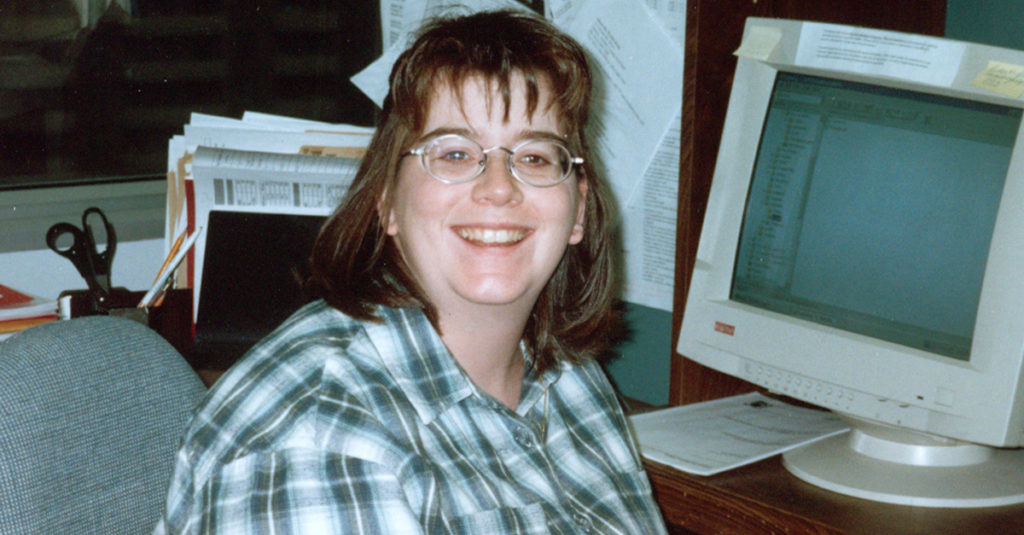
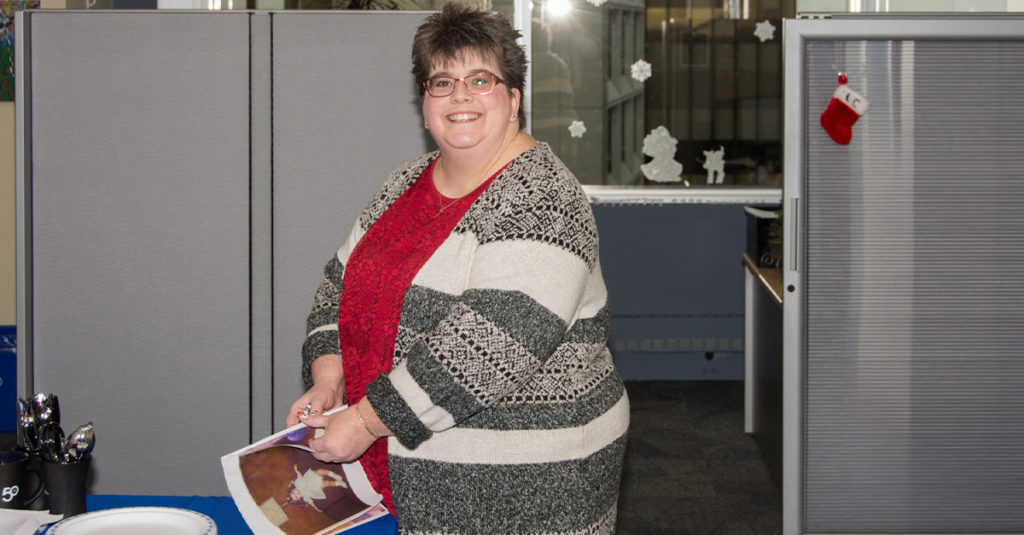
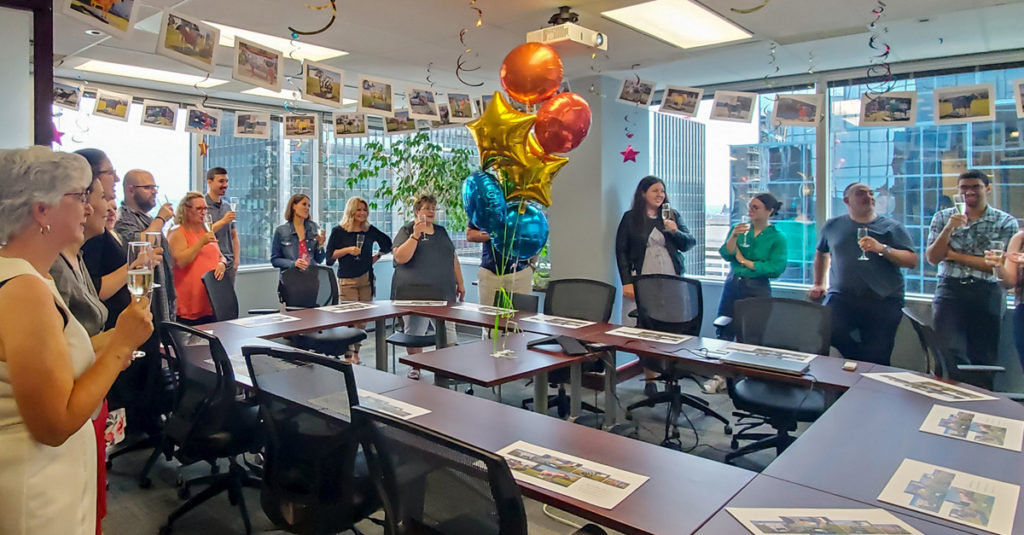
CAN’T LISTEN? READ THE TRANSCRIPT.
Fievoli: Welcome to Seeing Beyond Risk, a podcast series from the Canadian Institute of Actuaries. I’m Chris Fievoli, Staff Actuary, Communications and Public Affairs at the CIA.
Last year, Lynn Blackburn, the CIA’s Director of Professional Practice, Research and Governance, celebrated her 30th anniversary of working for the Institute. We thought this would be a good opportunity to invite her onto the podcast and have her share her reflections on working for the organization these past three decades. Lynn, thanks very much for joining us today.
Blackburn: It’s my pleasure.
Fievoli: So, I know I’ve been with the CIA almost 15 years, and that feels like a long time, and you’ve been here twice as long! So, let’s go right back to the start. Maybe tell us, how did you find yourself joining the CIA back in 1992? What did you know about the actuarial profession at the time, if anything?
Blackburn: Yeah, if anything. Okay, well, I was right out of university. I actually have a degree in French literature, believe it or not, and I wasn’t really sure what to do with it.
When I started, I wanted to be a teacher, so that’s what I went into university expecting to do. And through the three and a half, four years that I was there, I changed my mind. And when it was time to graduate and get a job, I applied through an agency, and this job came about. So, I thought it would be interesting, I was able to use my French…
Anyway, it was a good opportunity for me. So, I applied, and I was hired as a membership secretary. It was very small at the time. We only had 12 staff, and I was one of two people in the membership department, and I managed the enrollment process, developing and sending out career information.
We did all that by snail mail back in the day, so putting packages together. And in terms of what I knew about actuaries, it was absolutely nothing. I actually looked it up in the dictionary before the interview, so that was the extent of how I got here.
Fievoli: Great. And back then we referred to the office as the secretariat, and of course it was a lot smaller. So, when you started, how many people were employed there? And what were some of the things, the main functions, that kept everybody busy?
Blackburn: We were only 12, and we’re up to 34 now. So that gives you an idea of how different it was. We had four departments. We had accounting, membership, meetings and publications, and the Executive Director at the time was Brian Wooding, and he was there for about a year when I first started. He left after about a year – I should say, he retired.
And that’s when Rick Neugebauer joined. They supported the Board, which was known as the council back then, and there wasn’t really a lot of involvement from other staff at the Board level. We were admin staff, and we did our work, and it was very administrative.
Fievoli: So, you’ve had a lot of different responsibilities over the years. Can you tell us about how those changed and what are some of the different initiatives that you’ve been able to contribute to?
Blackburn: Well, I was actually very lucky in that the opportunities to expand my role within the CIA would always present themselves at the right time, I guess. I was part of the membership department, and I moved into managing the membership department after about a year. And it was just me, and then I had a shared person who worked half her time in the accounting department, and it involved managing the database.
And then shortly after that, or a few years after that, we got an office network which we didn’t even have at the time. And that got me involved in IT. And so, I managed the IT Department until about ten years ago I think now, and it was more just overseeing consultants and things like that. I wasn’t an expert in it by any means, but that was a real shift from what I was hired on to do. But it was an opportunity that came about, and we had the need for it. It was really interesting, it taught me a lot.
The other thing that was different, most committee work was managed by volunteers. Nowadays a lot of our committees have a staff support person attending, doing agendas and minutes. Not all, but a fair number of them. Back then there weren’t. There were some key groups like the councils that were created in 2000, but I looked after the Education Examination Council, which was closely tied to membership. That was sort of my focus for the first couple of decades, pretty much.
And then when Daniel Lapointe, he became the ED in 2004, he changed things up, created the director positions that we know today, and the senior management took on more responsibility as a team of subject matter experts. We were not as admin anymore. We were dealing with giving opinions on strategy and things like that, working with the Executive Director, more closely with the Board.
And I got into the governance role. That’s the other angle to my job right now. I got into the governance role under Daniel, and I volunteered. It was an interesting thing. Most people know now I’m usually doing bylaw amendments and changes to governance documents and things like that. And I actually got into that because I volunteered to draft bylaw changes one time to save some money because we used to have lawyers do all the drafting of all of our bylaws and rules changes, things like that.
So, I offered to give it a shot because I really enjoyed policy writing and things like that. So, it was very interesting, and it worked! And we still had the lawyers review it after to make sure everything was kosher. But that’s how I kind of got into that role and it kind of stuck. So, some of the big initiatives over the years have been rewriting bylaws rewriting the governance, any governance documents and policies, that kind of stuff. And I really enjoy that part of my job now.
Fievoli: Cool. So, it sounds like you did a little bit of everything so that’s great. I know you mentioned a couple of the former executive directors and I think you’ve had four of them that you’ve worked with over the years.
Blackburn: That’s right.
Fievoli: They probably all had their own different approaches to things, but maybe you could just compare how they viewed their role and how it impacted the work that we were doing at the secretariat and eventually the Head Office.
Blackburn: I’ve worked under Brian Wooding, as I said. Rick Neugebauer, he was there for about 10 years. Daniel Lapointe, he was there for another eight or so, I think, and then Michel Simard has been there for 11 now. And to be honest, I don’t recall much about Brian Wooding’s management style. I remember being sad when he left because I think he was very well liked by all the staff, and I worked well with him.
Rick was a military guy, and he appreciated structure, organization. And it was all about that. He managed the former council, and the staff were admin like I said. Daniel, he empowered his directors to take on more management responsibility. To be fair, the workload was growing at the time too, along with the number of staff, and it was too much for one person to manage directly the way that Rick had done previously, and Daniel was also very career oriented, and he expected a lot from staff.
We were pushed hard during his time — and not in a bad way. Like it was very good. We were very motivated to succeed, and we had created a commitment to excellence, and it was all about the career, so that was a very interesting time.
Michel arrived and he largely followed the senior management team model, but he empowered us even further, the senior management team. We started attending Board meetings, which was a great help to us in our everyday jobs, and understanding the thought process that the Board goes through. It made our jobs a lot easier. Michel is also a big proponent of finding a work-life balance and encourages all staff to do that. And that has allowed us to put together a team of really competent, dedicated individuals.
They’re truly engaged with the CIA, and I can’t underestimate the value that that brings to us as managers who are not always in the hiring process. We have staff that have been around a long time. So yeah, very different eras. We refer to them as eras, the different ED eras.
Fievoli: Yeah. I don’t think we have time to go over all the things that have changed over the last 30 years. So maybe you could just pick one or two things that really stood out to you as a major difference you’ve seen during your time.
Blackburn: Well, being closely linked on the membership side, and that’s kind of been my bailiwick, I’m not sure there’s one thing that surprised me the most. But if I had to pick the one thing that comes to mind that ended up surprising me, I guess a little bit in the end, is the creation of the ACIA designation.
We had the concept of services to students back in the early 90s. Associates were referred to as students. We started back in the early 90s, ‘92, ‘94, and then a few more years later talking about services to students and what could we do to enhance the service. Because you would join as a student, and you would pay dues and you were basically now obligated to follow any requirements.
CPD was just starting at the time, but CPD and we were allowed to discipline you. So, there wasn’t a lot of value proposition there. And each time that we reviewed that the potential services, a designation was proposed to give them something to stand by. And it was it was rejected two or three times. And then finally, in 2012, the Board agreed with the recommendation.
It was a pivotal moment, as far as I’m concerned, in the CIA’s history. And it put us on the path to our new education model and the new pathways that we’re seeing now. So, I think that’s a pivotal time for the Institute at the time.
Fievoli: Well, before we wrap up, did you have any final thoughts before we close off today’s episode?
Blackburn: Well, I guess two things. One is you probably get it from what I’ve been saying, but this is a great place to work. I mean, the longevity of several staff is a testament to that. Like I said, we have 34 staff, I think over 10. I think there’s about 10 or 11 that have been here for more than 10 years. So, it gives you an idea. And a bunch of other ones are five to 10 years. And we have a lot of new staff as well, but it’s due to growth, there’s hardly ever any departures. So, I think that speaks a lot to how the Institute is run and the level of engagement of staff. So, I think that’s a big deal for me and very important for me.
The other thing is that I can’t underestimate sort of the admiration I have for the volunteers, how thoughtful they are when discussing a topic or approving a document. This is all on their volunteer time. They’re not getting paid for this. I get paid to do this work, so I try and do whatever I can to support them. But the work of the volunteers, we couldn’t do it without them. And I know that’s said all the time, but it’s so true, and I have a lot of admiration for all the people that devote their time and dedication to the Institute. It’s so key for us.
Fievoli: Yeah, I think that’s true from everybody that works at the Head Office. So, I certainly agree with you there. So, listen, congratulations on your 30-year anniversary. I don’t know if I should wish you 30 more years, but…
Blackburn: No, I don’t think so. But maybe another decade or so. I’m still young.
Fievoli: Sounds good. Well, thanks. Thanks very much for joining us today to talk about your experiences with the CIA.
Blackburn: Thank you.
Fievoli: If you enjoyed today’s conversation, we invite you to subscribe to our podcast series and catch up on prior episodes. And if you have any ideas for a future episode, or you’d like to contribute to our Seeing Beyond Risk blog, we would love to hear from you. Contact information can be found in the show description.
Until next time, I’m Chris Fievoli, and thank you for tuning in to Seeing Beyond Risk.
This transcript has been edited for clarity.
The following comments were shared by readers:
Sandra Caya: The CIA has been extremely fortunate to have someone with your skills and dedication for so long, Lynn. Here’s to your next milestone!
Jim Murta: Lynn, congratulations on your 30 years. I really enjoyed working with you during my time on the Board and as President. You accomplished so much. All the best.



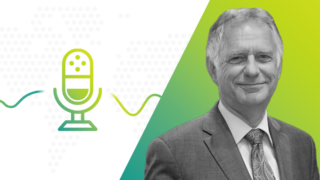
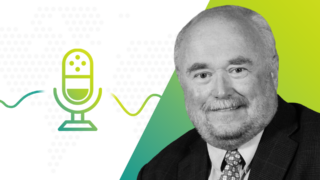

The CIA has been extremely fortunate to have someone with your skills and dedication for so long, Lynn. Here’s to your next milestone!
Lynn, congratulations on your 30 years. I really enjoyed working with you during my time on the Board and as President. You accomplished so much.
All the best